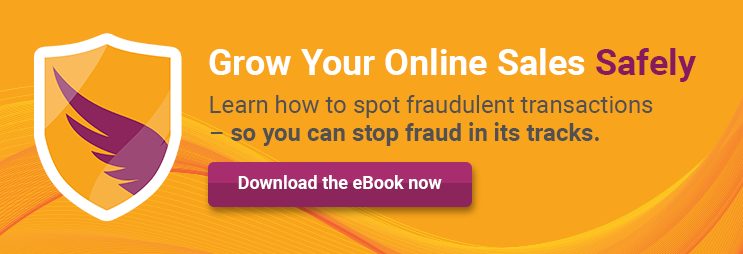How Is Chargeback Protection Different from Chargeback Insurance?
Good news for small business e-commerce website owners trying to protect their profits: There are plenty of resources and services available to help you with fraud protection. The bad news is that it can be tough to clearly evaluate all of these options.
One of the keys to finding the right fraud solution for your business is to understand how the solutions vary in the protection they offer, so that you can determine the best fit for your needs.
Some partners offer chargeback protection. Others feature chargeback insurance. How are they different? What level of protection do you really need?
Let’s take a quick look at what both options offer.
What Is Chargeback Protection?
Finding a fraud solution provider is not a terribly difficult task these days. As instances of fraud have steadily grown over the past several years, so too has the number of companies offering to help businesses deal with the persistent problem of chargebacks.
What can be difficult, however, is finding a chargeback protection program that delivers what you might need as a small business owner.
Ultimately, it’s a matter of how much your vendor is willing to guarantee.
Typically, a vendor offering chargeback protection will cover a portion of the potential losses a business might incur due to fraudulent transactions. Sometimes, vendors won’t cover any losses – in which case you’ll be responsible for any and all chargebacks, regardless of why the chargeback occurred. And in some circumstances, you may even face additional penalties from your vendor.
All of this means that although your fraud protection vendor may offer tools or solutions to help you monitor transactions and identify fraud, you may in fact have little to no actual coverage in case things go wrong.
Even if your vendor offers chargeback protection, it’s typically limited in scope. It’s likely that you’ll still exposed to substantial risk, including direct risks such as chargeback scams (i.e., “friendly fraud”) in which consumers claim purchases were undelivered, and those indirect:
- Chargeback fees for approved transactions that were in fact fraudulent
- Potential increases in payment processing fees due to higher chargeback ratios
- Potential damage to the seller’s reputation caused by negative customer experiences
What Is Chargeback Insurance?
True chargeback insurance, on the other hand, offers more advanced and secure protection for business owners. In fact, only a handful of providers offer this option (Clearsale does – and has been for more than ten years).
Chargeback insurance provides a 100% guarantee that covers the merchant if the fraud solution partner approves a transaction that turns out to be fraudulent and results in a chargeback. Should this happen, the fraud partner will pay the entire cost of the chargeback.
On the surface, the difference between chargeback protection and chargeback insurance may not seem big. But with the trend in friendly fraud and chargeback fees ranging upwards as high as $100 per transaction – not to mention the other hidden costs to your business described above – the true expense of fraud can quickly add up for small businesses.
A good chargeback insurance program works just like any other type of insurance by covering the losses the insured party incurs. Ultimately, it’s about peace of mind – knowing that your business is covered no matter what happens.
Limiting your exposure to chargebacks is an essential step toward safeguarding your business and establishing your trustworthiness with consumers. Of course, chargeback insurance should be just one part of a more comprehensive fraud protection and prevention plan.
Contact contact@clear.sale today to learn how seriously we take fraud protection, and how we can help you develop a plan for your small business to help you rest a little bit easier when it comes to the threat of chargebacks.
 Sarah Elizabeth
Sarah Elizabeth
